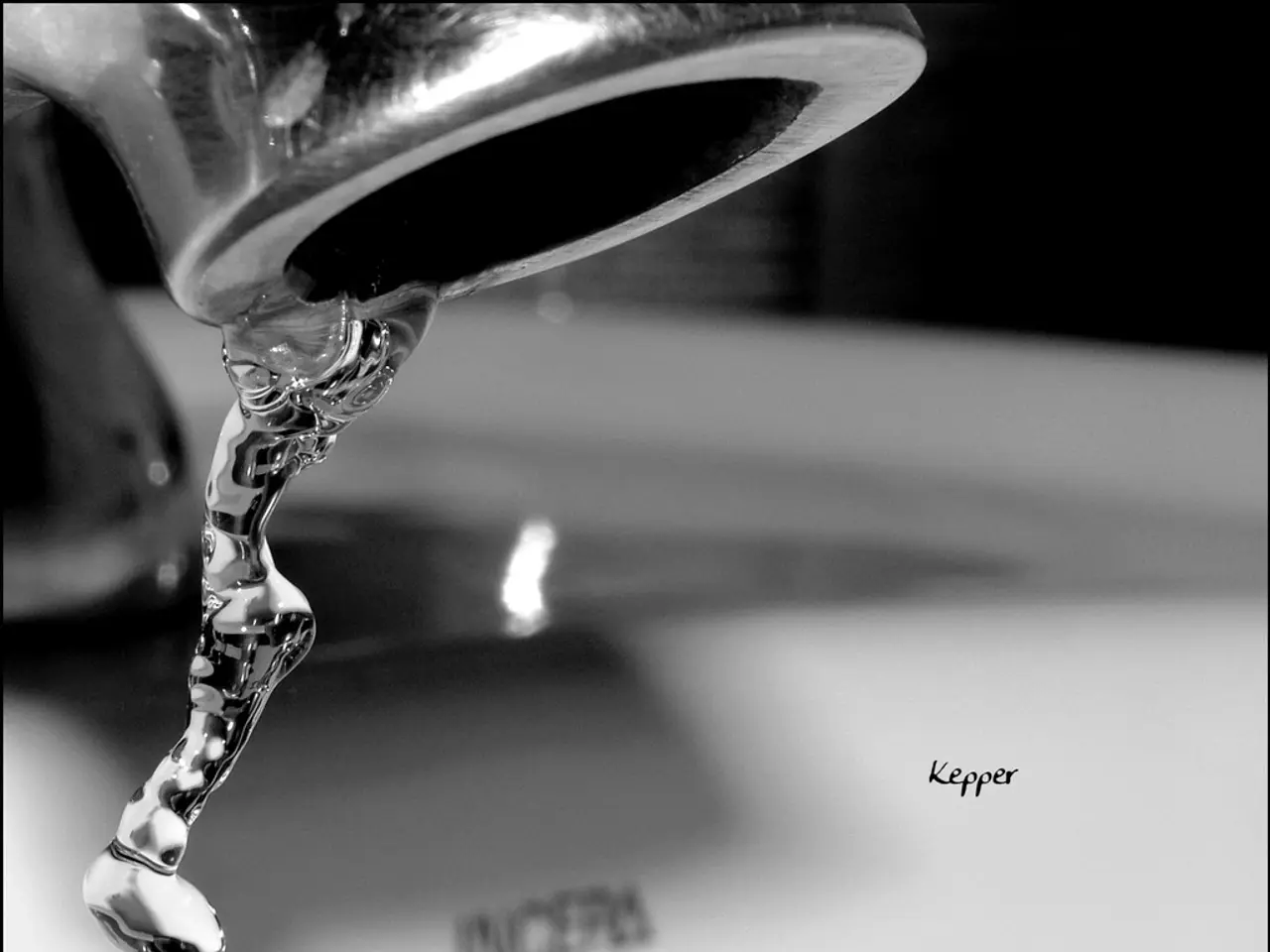Chemicals persistent in water from domestic wells found in increased quantities during AK testing
In Upper Austria, concerns over the quality of private well water have arisen due to excessive nitrate and the presence of per- and polyfluoroalkyl substances (PFAS), often referred to as "forever chemicals."
Recent findings indicate that agricultural practices, particularly excessive use of nitrogen fertilizers, are contributing to high nitrate levels in private wells. To combat this issue, best practices suggest reducing nitrogen fertilizer application, implementing more precise fertilization techniques, and improving land use management to minimize nitrogen runoff into water sources. These measures aim to limit nitrate leaching and stabilize soil nitrogen, thereby protecting well water quality.
Concerning PFAS, these substances are highly persistent environmental pollutants that pose long-term health risks due to their toxicity and reluctance to break down. Efforts to manage PFAS contamination involve identifying and mitigating both point-source industrial pollution and diffuse pollution sources to prevent further contamination of water supplies, including private wells.
The Upper Austrian Chamber of Labor conducted tests on water from 934 private wells in 14 municipalities, revealing significant findings. A peak value of 200 mg/l was measured in Freistadt, while the highest TFA concentration was 11.79 μg/l in a private well in Schiedlberg, district of Steyr-Land. Another well in Eferding had a TFA concentration of 10.93 μg/l, marking a five-fold increase from the previous highest measured level in Upper Austria (2.53 μg/l).
Consumer advocates have urged the protection of water bodies from TFA, highlighting these concerning levels. The Austrian Agency for Health and Food Safety (AGES) has also conducted additional tests on water samples with high nitrate levels for TFA, revealing that 29 private wells in Upper Austria contain levels of trifluoroacetic acid (TFA) exceeding 2.2 μg/l.
Despite these findings, there is no limit value for TFA, and nitrate levels in Upper Austrian private wells have decreased, with only 5.7% of samples exceeding the permissible limit of 50 mg/l. The funding for testing water samples will continue until the end of the year.
To ensure the safety of private well water, the AK recommends regular drinking water analyses for private well owners and structural inspections of wells for health reasons. Boiling water is not effective in reducing nitrate levels, as it only concentrates the nitrate further.
These measures are critical to safeguarding drinking water quality in Upper Austrian private wells, ensuring the health and well-being of its residents.
To address the rising concerns about the quality of private well water in Upper Austria, a comprehensive economic and social policy could be implemented. This policy could focus on agricultural practices, promoting science-based solutions to reduce the use of nitrogen fertilizers and minimize nitrate runoff into water sources, thus protecting private well water and improving health-and-wellness. Additionally, environmental-science research could be invested in to develop methods for identifying and mitigating PFAS contamination, ensuring the long-term safety of private well water and public health.




